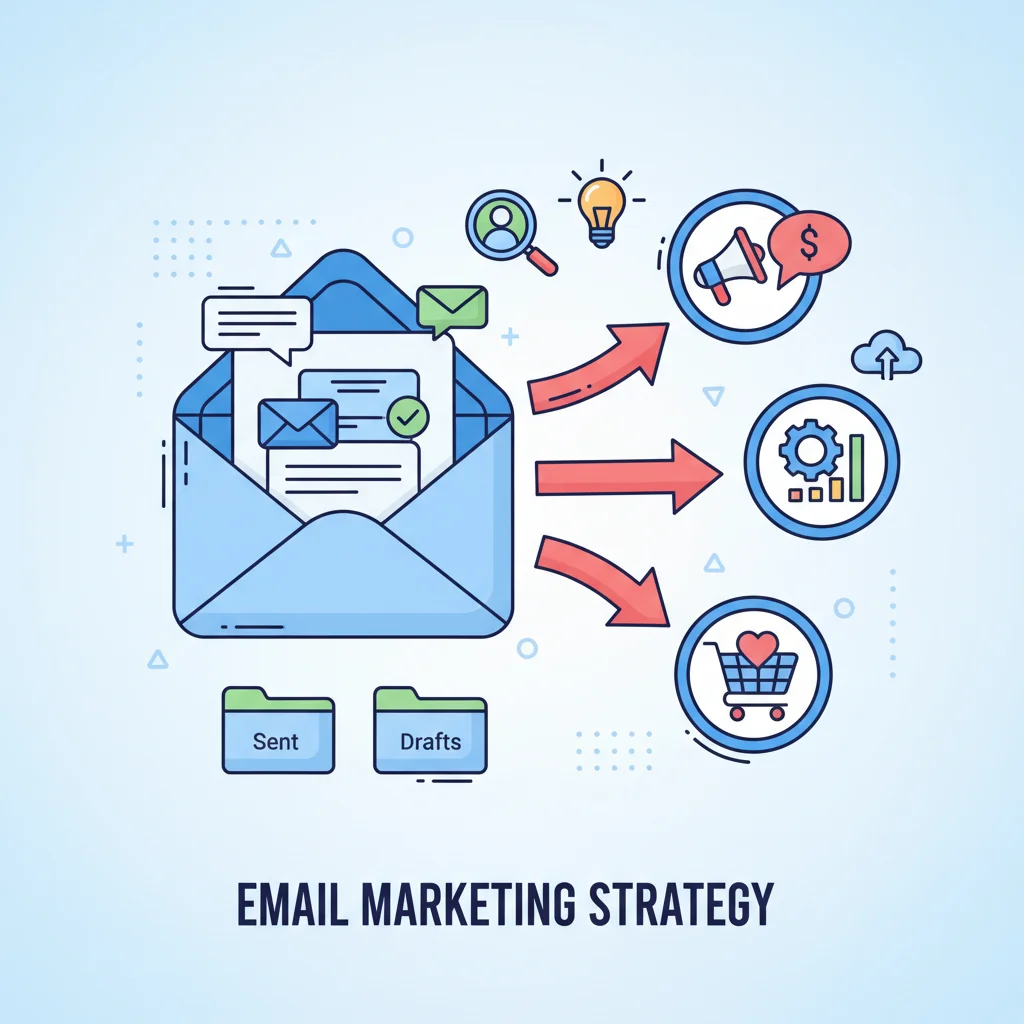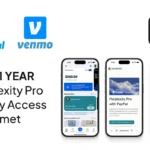Now Reading: 12 Best E-commerce Email Marketing Tools for Online Stores
-
01
12 Best E-commerce Email Marketing Tools for Online Stores
12 Best E-commerce Email Marketing Tools for Online Stores

Imagine waking up to notifications of sales that happened while you slept – all triggered by automated email sequences you set up once. That’s exactly what the best e-commerce email marketing tools can do for your online store. I’m about to show you 12 platforms that can transform your email marketing from a time-consuming chore into a revenue-generating machine.
Omnisend
When it comes to e-commerce email marketing platforms, Omnisend consistently ranks at the top of my list. This platform was built specifically for online stores, and it shows in every feature they offer.
Key features include pre-built automation workflows for cart abandonment, welcome series, and post-purchase follow-ups. Their drag-and-drop email builder makes creating beautiful campaigns a breeze, even if you’re not a designer. What really sets Omnisend apart is their omnichannel approach – you can send emails, SMS messages, and push notifications all from one dashboard.
The segmentation capabilities are impressive too. You can create highly targeted campaigns based on purchase history, browsing behavior, and customer lifetime value. Their product recommendation engine uses AI to suggest relevant items, which can significantly boost your average order value.
Pricing starts free for up to 250 contacts and 500 emails monthly. Paid plans begin at $30/month for 2,000 contacts, scaling up to $330/month for 50,000 contacts.
Pros:
- Excellent e-commerce integrations with Shopify, WooCommerce, and BigCommerce
- Generous free plan with advanced features
- Multi-channel marketing capabilities
- User-friendly interface
Cons:
- Email deliverability could be better
- Advanced reports update only once daily
- Can get expensive as your list grows
Best for: Online stores wanting comprehensive email marketing with SMS and push notification capabilities built-in.
Klaviyo
Klaviyo has earned its reputation as one of the most powerful email marketing platforms for e-commerce businesses. What I love about Klaviyo is how it doubles as a customer data platform, giving you incredibly detailed insights into your customers’ behavior.
The platform excels at behavioral targeting and personalization. You can trigger emails based on specific actions like product views, cart additions, or purchase history. Their predictive analytics can even forecast when a customer is likely to make their next purchase.
Klaviyo’s email builder is intuitive, and their form builder is particularly impressive. You can A/B test not just your emails, but your signup forms too – something many platforms don’t offer. The dynamic product recommendations feature automatically showcases relevant products in your emails based on browsing and purchase history.
Pricing starts free for up to 250 contacts and 500 email sends monthly. Paid plans range from $20/month for 251-500 contacts up to $1,700/month for larger lists.
Pros:
- Powerful segmentation and personalization
- Built-in customer data platform
- Excellent A/B testing capabilities
- Industry benchmark data for comparison
Cons:
- Steep learning curve for beginners
- Pricing can get expensive quickly
- Limited design templates
Best for: Growing e-commerce businesses that want advanced segmentation and don’t mind investing time in learning the platform.
ActiveCampaign
ActiveCampaign might not be exclusively built for e-commerce, but it’s hands-down the most powerful automation platform I’ve used. If you’re serious about creating sophisticated email marketing funnels, this is your tool.
The visual automation builder is incredibly flexible. You can create complex workflows with multiple triggers, conditions, and actions. Want to send different emails based on purchase amount, location, and previous engagement? ActiveCampaign makes it possible.
Their reporting capabilities are comprehensive, offering everything from basic open rates to advanced features like click maps and geolocation data. The platform also includes CRM functionality, making it easier to manage customer relationships alongside your email marketing.
Pricing starts at $19/month for 1,000 contacts, going up to $759/month for 50,000 contacts. There’s no free plan, but they offer a 14-day free trial.
Pros:
- Extremely powerful automation capabilities
- Excellent email deliverability
- Comprehensive reporting and analytics
- Built-in CRM functionality
Cons:
- No free plan
- Can be overwhelming for beginners
- Higher price point than some competitors
Best for: E-commerce businesses that want to create sophisticated, multi-step email marketing campaigns and don’t mind paying for premium features.
Useful Articles:
MailerLite
MailerLite proves that simple doesn’t mean less effective. This platform focuses on ease of use while still offering solid e-commerce features that can help grow your online store.
The interface is clean and intuitive – you won’t spend hours figuring out where everything is. Despite its simplicity, MailerLite includes essential e-commerce features like product blocks, automation workflows, and detailed revenue tracking. You can easily showcase products in your emails and track how much revenue each campaign generates.
Their automation capabilities cover the basics well: welcome sequences, abandoned cart emails, and post-purchase follow-ups. While not as advanced as some competitors, these automations are easy to set up and effective.
Pricing is very competitive with a generous free plan for up to 1,000 subscribers. Paid plans start at $25/month for 2,500 contacts and scale reasonably as your list grows.
Pros:
- Extremely user-friendly interface
- Generous free plan
- Excellent email deliverability
- Affordable pricing
Cons:
- Limited advanced automation options
- Basic reporting compared to competitors
- Fewer integrations than larger platforms
Best for: Small to medium e-commerce businesses that prioritize simplicity and don’t need complex automation workflows.
GetResponse
GetResponse positions itself as an all-in-one marketing platform, and for e-commerce stores, that can be incredibly valuable. Beyond email marketing, you get landing page builders, webinar tools, and even a basic e-commerce platform.
The conversion funnel builder is particularly useful for e-commerce businesses. You can create complete sales funnels that guide customers from initial interest to purchase. Their AI-powered product recommendations help increase average order values by suggesting relevant items.
GetResponse also includes some unique features like webinar hosting, which can be great for product demonstrations or customer education. The platform integrates well with major e-commerce platforms and includes solid automation capabilities.
Pricing starts with a 30-day free trial. Paid plans begin at around $15/month for basic features, with more advanced e-commerce tools available in higher-tier plans.
Pros:
- All-in-one platform with multiple marketing tools
- Good automation capabilities
- Conversion funnel builder
- Competitive pricing
Cons:
- Interface feels dated compared to newer platforms
- Some advanced features require higher-tier plans
- Learning curve for all the available tools
Best for: E-commerce businesses that want multiple marketing tools in one platform and don’t mind a slightly older interface.
Drip
Drip markets itself as an “ECRM” (E-commerce CRM), and that focus really shows in their feature set. This platform is built specifically for online retailers who want to create personalized customer experiences.
What sets Drip apart is their advanced segmentation capabilities. You can create incredibly specific customer segments based on purchase behavior, lifetime value, and engagement patterns. Their visual workflow builder makes it easy to create complex automation sequences that feel personal to each customer.
The platform excels at behavioral tracking, monitoring everything from email engagement to website activity. This data feeds into their automation engine, allowing you to trigger highly relevant emails based on customer actions.
Pricing starts at $39/month for up to 2,500 contacts, which is higher than some competitors but reflects their focus on advanced features.
Pros:
- Excellent behavioral tracking and segmentation
- Powerful automation workflows
- Strong e-commerce integrations
- Detailed customer profiles
Cons:
- Higher starting price point
- Can be complex for beginners
- Limited template selection
Best for: Established e-commerce businesses that want to create highly personalized customer experiences and have the budget for premium features.
Useful Articles:
Mailchimp
Mailchimp is probably the most recognizable name in email marketing, and while they’ve expanded beyond their e-commerce roots, they still offer solid features for online stores.
The platform is known for its user-friendly interface and extensive template library. Their drag-and-drop editor makes it easy to create professional-looking emails, even if you’re not particularly design-savvy. Mailchimp also offers basic automation workflows suitable for most e-commerce needs.
Recent updates have added more sophisticated e-commerce features, including product recommendations and abandoned cart recovery. Their integration with Shopify and other platforms is seamless, making it easy to sync your store data.
Pricing includes a free plan for up to 500 contacts and 1,000 emails monthly. Paid plans start around $13/month and scale with your contact list size.
Pros:
- Very user-friendly interface
- Extensive template library
- Good integration options
- Recognizable brand with solid reputation
Cons:
- Can become expensive for larger lists
- Advanced e-commerce features limited compared to specialized platforms
- Automation capabilities are basic
Best for: Small e-commerce businesses or those just starting with email marketing who want a familiar, easy-to-use platform.
Brevo
Formerly known as Sendinblue, Brevo offers a comprehensive marketing platform that’s particularly attractive for budget-conscious e-commerce businesses.
The platform combines email marketing with SMS, chat, and CRM functionality. For e-commerce stores, this means you can manage multiple customer touchpoints from one dashboard. Their transactional email service is particularly robust, handling order confirmations and shipping notifications reliably.
Brevo’s automation features cover essential e-commerce workflows like welcome series, abandoned cart recovery, and win-back campaigns. While not as advanced as some competitors, these automations are effective and easy to set up.
Pricing is very competitive with a generous free plan that includes up to 300 emails daily. Paid plans start at around $25/month, making it one of the more affordable options.
Pros:
- Very affordable pricing
- Multi-channel marketing capabilities
- Reliable transactional email service
- Good deliverability rates
Cons:
- Limited advanced automation features
- Interface could be more modern
- Fewer e-commerce-specific features than specialized platforms
Best for: Small to medium e-commerce businesses looking for an affordable, multi-channel marketing solution.
HubSpot
HubSpot brings enterprise-level marketing automation to businesses of all sizes. While their free plan is quite generous, their real power shows in the paid tiers.
The platform excels at lead nurturing and customer lifecycle management. You can create sophisticated workflows that guide prospects from initial awareness through purchase and beyond. Their CRM integration means you have complete visibility into each customer’s journey.
For e-commerce businesses, HubSpot offers solid automation capabilities and detailed analytics. Their content management and landing page tools can also help with broader marketing efforts beyond just email.
Pricing starts free with basic features. Paid plans begin around $45/month but can get expensive quickly as you add features and contacts.
Pros:
- Comprehensive marketing platform
- Excellent CRM integration
- Powerful analytics and reporting
- Strong automation capabilities
Cons:
- Can be expensive for advanced features
- Steep learning curve
- May be overkill for simple e-commerce needs
Best for: Larger e-commerce businesses or those wanting a complete marketing and sales platform, not just email marketing.
Useful Articles:
Constant Contact
Constant Contact focuses on simplicity and reliability, making it a solid choice for e-commerce businesses that don’t need bells and whistles.
The platform offers straightforward email marketing tools with decent automation capabilities. Their template library is extensive, and the drag-and-drop editor is intuitive. While not as advanced as some competitors, Constant Contact covers the basics well.
Their e-commerce features include product showcases, promotional campaigns, and basic segmentation. The platform integrates with popular e-commerce platforms and offers reliable delivery rates.
Pricing starts around $12/month for basic features, with more advanced tools available in higher-tier plans.
Pros:
- Simple, user-friendly interface
- Reliable email delivery
- Good customer support
- Affordable pricing
Cons:
- Limited advanced automation features
- Basic e-commerce functionality
- Fewer integrations than competitors
Best for: Small e-commerce businesses that prioritize simplicity and reliability over advanced features.
Moosend
Moosend is a newer player that’s gaining traction among e-commerce businesses for its combination of powerful features and affordable pricing.
The platform offers advanced automation capabilities that rival much more expensive competitors. Their visual workflow builder is intuitive, and you can create complex customer journeys based on behavior, preferences, and purchase history.
Moosend’s e-commerce features include product recommendations, abandoned cart recovery, and detailed revenue tracking. Their AI-powered personalization helps ensure each customer receives relevant content.
Pricing is very competitive, starting at just $9/month for paid plans, with a generous 30-day free trial.
Pros:
- Excellent value for money
- Powerful automation features
- User-friendly interface
- Good e-commerce integrations
Cons:
- Smaller company with less brand recognition
- Fewer third-party integrations
- Limited advanced reporting
Best for: E-commerce businesses looking for advanced features at budget-friendly prices and willing to try a newer platform.
ConvertKit
ConvertKit was originally built for creators and bloggers, but its powerful automation features make it surprisingly effective for e-commerce businesses, especially those with a strong content component.
The platform excels at subscriber management and segmentation. You can easily tag subscribers based on their interests and behavior, then send highly targeted campaigns. Their automation workflows are visual and intuitive to set up.
While ConvertKit doesn’t have as many built-in e-commerce features as specialized platforms, it integrates well with popular e-commerce tools and can be very effective for businesses that blend content marketing with product sales.
Pricing starts free for up to 300 subscribers, with paid plans beginning around $15/month.
Pros:
- Excellent segmentation and tagging system
- Intuitive automation workflows
- Good for content-driven businesses
- Fair pricing structure
Cons:
- Limited built-in e-commerce features
- Fewer templates than competitors
- May require more manual setup for e-commerce workflows
Best for: E-commerce businesses that heavily use content marketing or sell digital products alongside physical goods.
Comparison Table: Best E-commerce Email Marketing Tools
| Platform | Starting Price | Free Plan | Best Feature | Ideal For |
|---|---|---|---|---|
| Omnisend | $30/month | Yes (250 contacts) | Multi-channel marketing | Comprehensive e-commerce marketing |
| Klaviyo | $20/month | Yes (250 contacts) | Advanced segmentation | Data-driven businesses |
| ActiveCampaign | $19/month | No | Powerful automation | Complex workflow needs |
| MailerLite | $25/month | Yes (1,000 contacts) | Ease of use | Beginners and small stores |
| GetResponse | $15/month | 30-day trial | All-in-one platform | Multi-tool marketing |
| Drip | $39/month | No | Behavioral tracking | Personalization focus |
| Mailchimp | $13/month | Yes (500 contacts) | User-friendly | First-time users |
| Brevo | $25/month | Yes (300 emails/day) | Affordable pricing | Budget-conscious stores |
| HubSpot | $45/month | Yes (limited) | CRM integration | Enterprise needs |
| Constant Contact | $12/month | No | Simplicity | Basic email marketing |
| Moosend | $9/month | 30-day trial | Value for money | Budget with advanced features |
| ConvertKit | $15/month | Yes (300 contacts) | Creator-focused | Content-driven e-commerce |
After testing these platforms extensively, I can confidently say that the best e-commerce email marketing tools on this list each serve different business needs and budgets. Whether you’re just starting out or scaling a million-dollar store, there’s a platform here that’ll help you turn email subscribers into loyal customers.





















